"St. Maximilian Kolbe, martyr of love and defender of the faith, intercede for us. Help us to live with courage, faith, and charity, especially in times of suffering. May we follow your example of selflessness and devotion to God. Pray for us, that we may grow in holiness and always trust in God’s plan for our lives. Amen."
ST. MAXIMILIAN KOLBE (PRIEST)
ST. MAXIMILIAN KOLBE (PRIEST)
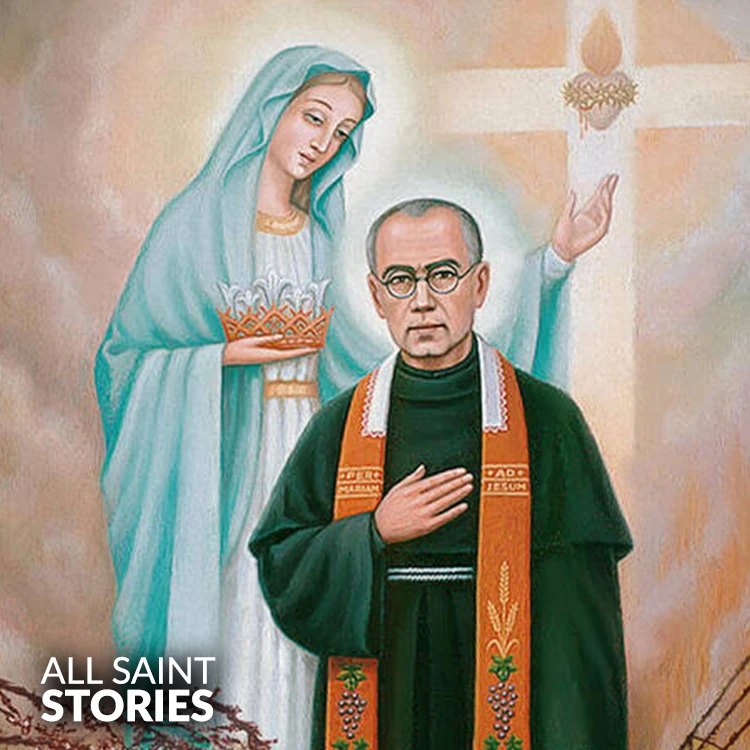
Saint Maximilian Kolbe, a Polish Franciscan friar and martyr, is best known for his act of self-sacrifice during World War II. He volunteered to die in place of another man at the Auschwitz concentration camp, offering his life to save a family. His unwavering faith and devotion to the Virgin Mary, along with his work spreading the Catholic faith through media, make him an enduring symbol of courage, selflessness, and love.
Saint Maximilian Kolbe was born Rajmund Kolbe on January 8, 1894, in Zdunska Wola, Poland. From a young age, he exhibited deep religious devotion, which led him to join the Franciscan Order in 1910. Upon entering the Order, he took the name Maximilian Maria Kolbe, reflecting his dedication to the Virgin Mary. Kolbe quickly became known for his intellectual abilities and his passion for spreading the Catholic faith through modern media, including publishing religious literature and establishing the Militia Immaculatae (Army of the Immaculate), a movement devoted to spreading devotion to the Virgin Mary.
In 1927, Kolbe founded the City of the Immaculata (Niepokalanów), a large Franciscan monastery near Warsaw, Poland. The city became a hub for religious activity, with an emphasis on spreading Marian devotion through the media. Kolbe published a popular religious magazine, Rycerz Niepokalanej (Knight of the Immaculate), and even established a radio station to further his outreach. His work had a significant impact, and by the outbreak of World War II, Niepokalanów had grown to become one of the largest Catholic monasteries in the world.
When the Nazis invaded Poland in 1939, Kolbe’s religious work came under threat. He was arrested by the Gestapo in 1941 and sent to the notorious Auschwitz concentration camp. Despite the brutality of the camp, Kolbe’s faith and compassion remained unshaken. He became known for his acts of kindness toward fellow prisoners, sharing what little food and comfort he could.
On July 28, 1941, a prisoner escaped from Auschwitz. In retaliation, the Nazis selected ten men to be executed by starvation. When one of the condemned men, Franciszek Gajowniczek, cried out for his wife and children, Kolbe stepped forward and offered to take his place. He said, "I am a Catholic priest. I would like to die in his place." The Nazis allowed the substitution, and Kolbe was placed in a starvation bunker with the other nine men. Over the next two weeks, Kolbe kept the men calm and united in prayer, even leading them in hymns. As the days passed, Kolbe remained the last survivor in the cell. The Nazis then executed him with a lethal injection of carbolic acid on August 14, 1941.
Kolbe’s self-sacrifice became a symbol of ultimate love and devotion to others. He was beatified by Pope John Paul II in 1971 and canonized as a martyr of charity in 1982. His feast day is celebrated on August 14, the day of his death. Today, Saint Maximilian Kolbe is revered as the patron saint of prisoners, families, and drug addicts, and his legacy continues to inspire Catholics around the world with his example of selflessness, compassion, and unwavering faith in the face of extreme suffering.
Video Not Found
The information on this website is compiled from various trusted sources. While we aim for accuracy, some details may be incomplete or contain discrepancies.
If you notice any errors or have additional information about this saint, please use the form on the left to share your suggestions. Your input helps us improve and maintain reliable content for everyone.
All submissions are reviewed carefully, and your personal details will remain confidential. Thank you for contributing to the accuracy and value of this resource.
Credits & Acknowledgments
- Anudina Visudhar (Malayalam) – Life of Saints for Everyday
by Msgr. Thomas Moothedan, M.A., D.D. - Saint Companions for Each Day
by A. J. M. Mausolfe & J. K. Mausolfe - US Catholic (Faith in Real Life) – Informational articles
- Wikipedia – General reference content and images
- Anastpaul.com – Saint images and reflections
- Pravachaka Sabdam (Malayalam) – Saint-related content and insights
We sincerely thank these authors and platforms for their valuable contributions. If we have unintentionally missed any attribution, please notify us, and we will make the correction promptly.
If you have any suggestion about ST. MAXIMILIAN KOLBE (PRIEST)
Your suggestion will help improve the information about this saint. Your details will not be disclosed anywhere.
© 2026 Copyright @ www.allsaintstories.com

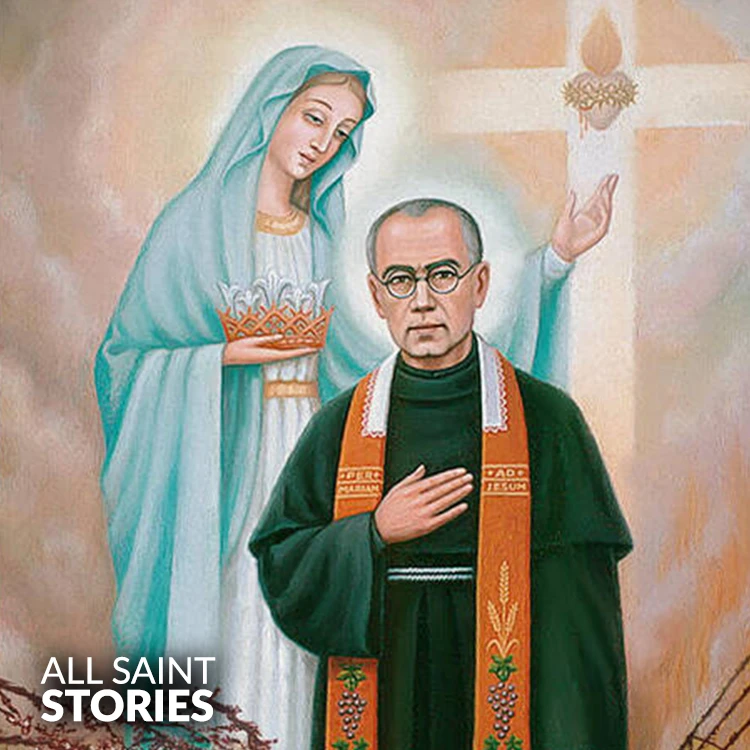
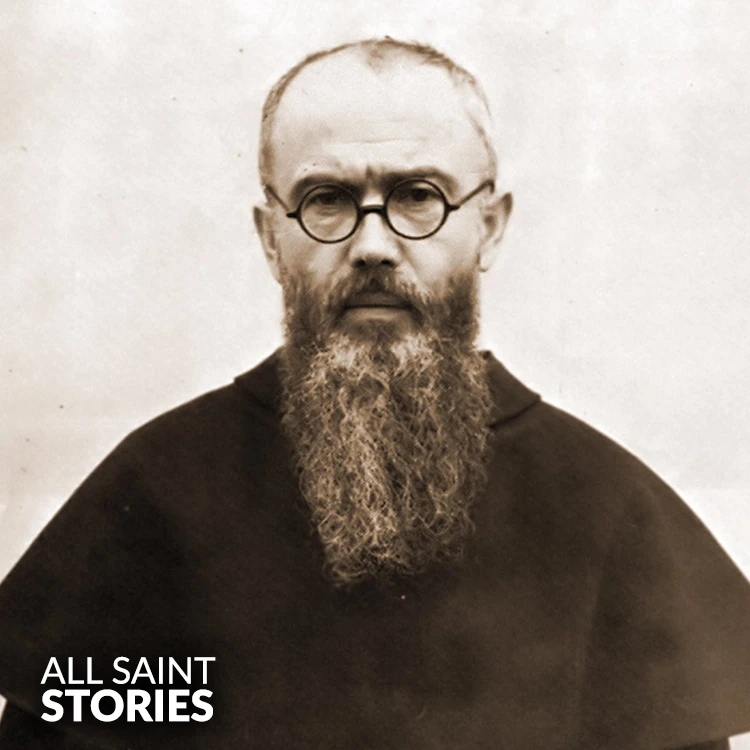
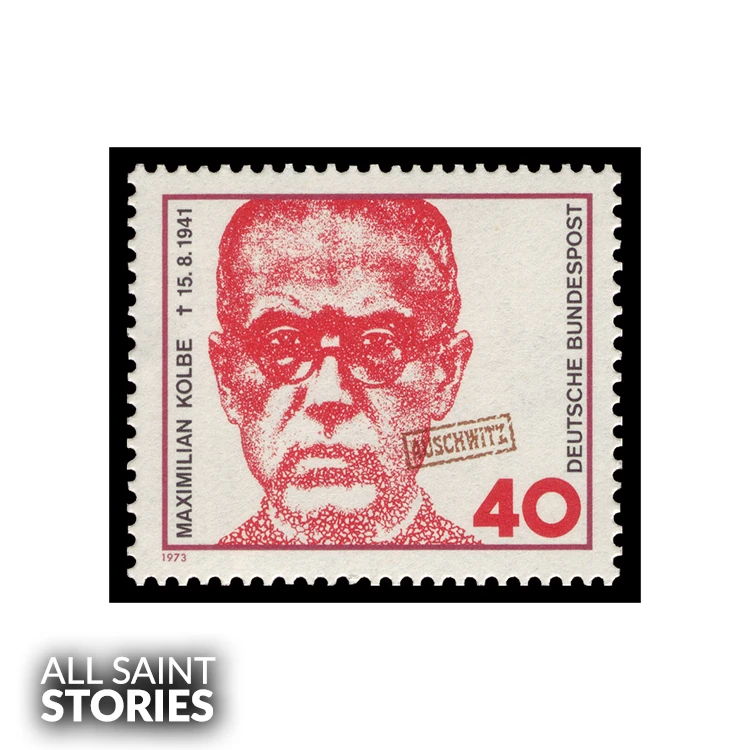
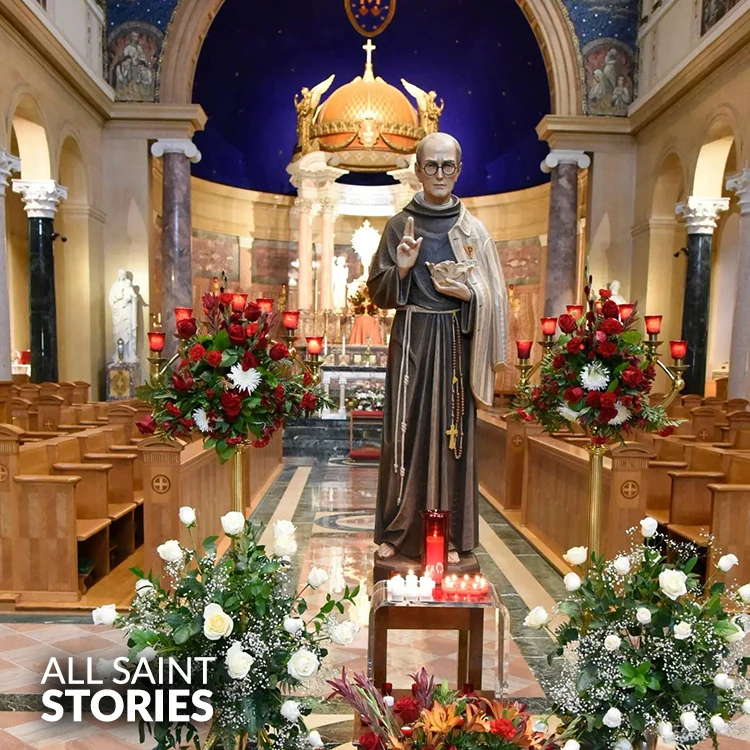



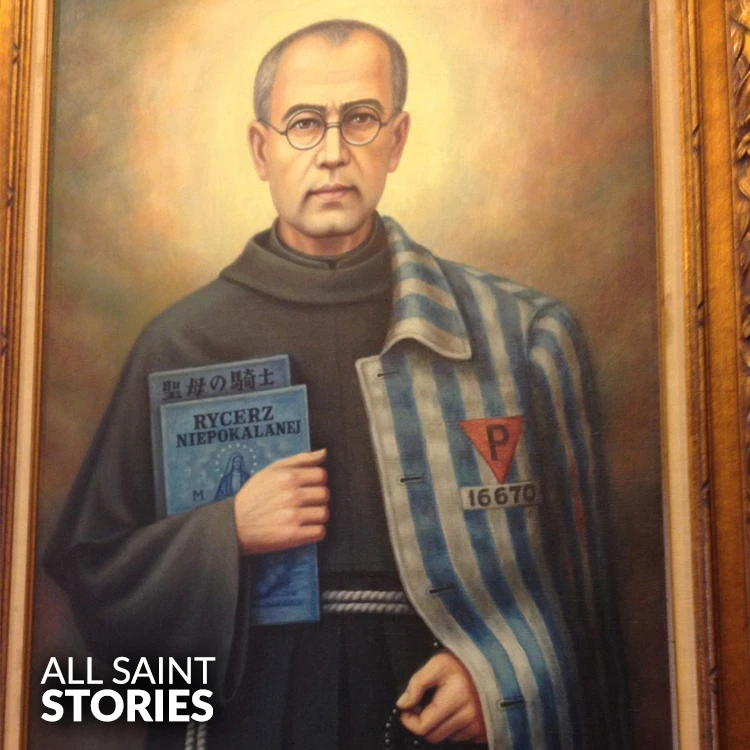
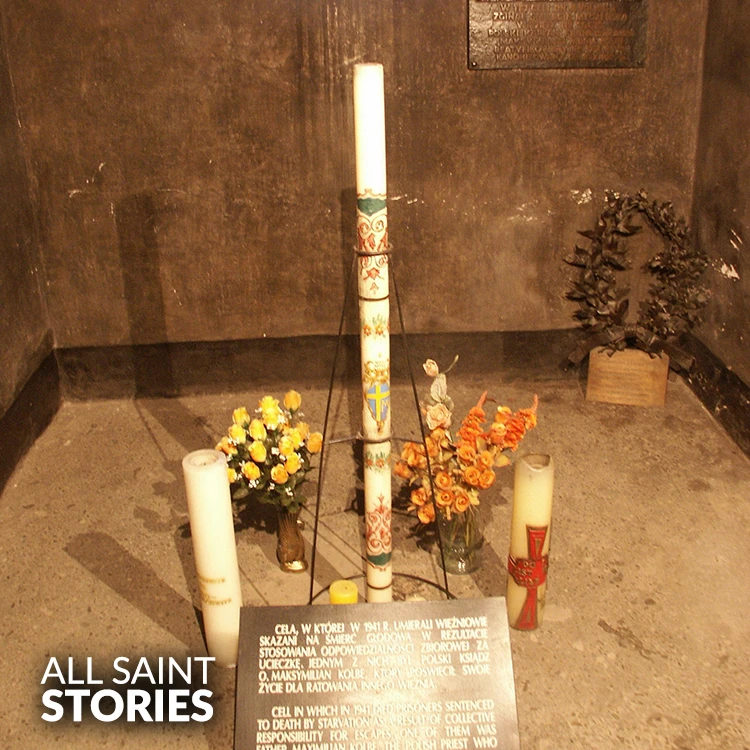

 English
English
 Italian
Italian
 French
French
 Spanish
Spanish
 Malayalam
Malayalam
 Russian
Russian
 Korean
Korean
 Sinhala
Sinhala
 Japanese
Japanese
 Arabic
Arabic
 Portuguese
Portuguese
 Bantu
Bantu
 Greek
Greek
 German
German
 Dutch
Dutch
 Filipino
Filipino